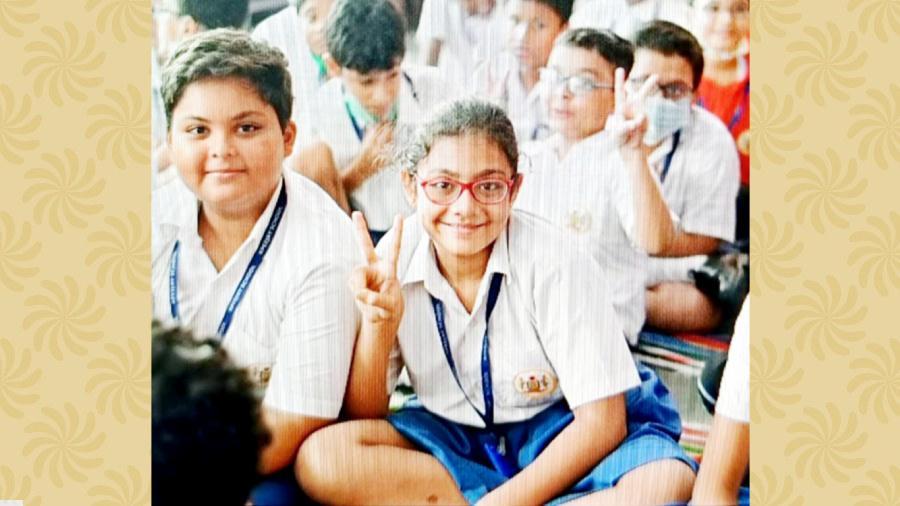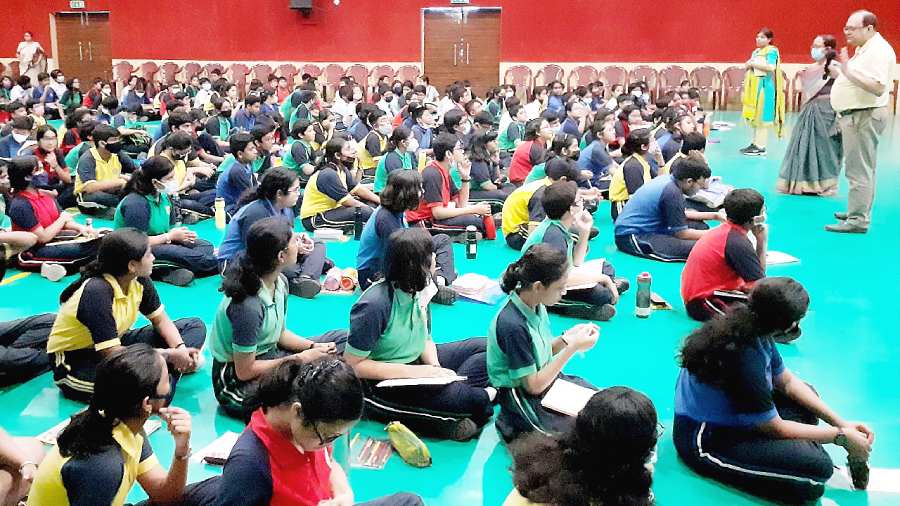For Class VI student Rishabh Dasgupta, watching Adventures of Jojo, based on a novel by Leela Majumdar, was a perspective-changing experience. “I want to watch some recent Bengali films,” said the Lakshmipat Singhania Academy student, who cheered when Jojo saves Chenghiz, the tiger, from poachers.
Students from 22 schools in the city are making a list of Bengali films that they can catch up on. The reason behind their change of heart is an initiative — Iskule Bioscope — that has been screening Bengali films in schools for six years now. The aim is to encourage children to learn and appreciate regional cinema.
An initiative of The Sauce Brand Communications, the sixth edition of Iskule Bioscope offered city schools six films and two documentaries to choose from. The theme was adventure. “This is the first time we had Bengali documentaries on our list,” said Bangalore-based Kaushik Chakraborty, co-founder and director of the organisation.

Students of The Apeejay School, Park Street, enjoy the screening of Ladakh Chale Rickshawala
“I want to study film or theatre in future. But, my exposure to Ray’s films was limited to Pather Panchali and Hirak Rajar Deshe. Watching Sandip Ray’s Phatik Chand in school made me want to watch more films by both the father and son,” said Aishwarya Mahalanobis, a Class XII student of Mahadevi Birla World Academy.
Ishani Sarbadhikari of Class VIII, Indus Valley World School, echoed the same. She wants to watch more films of comedian Rabi Ghosh. Her school hosted the inauguration and closing ceremony of the event. Students of Classes VI to VIII watched the documentary, Ladakh Chale Rickshawala, and met its crew.
“We organise activities and interactive sessions in between to engage the kids. They were pleasantly surprised that even a documentary can be so interesting,” said film-maker Subha Das Mollick, who co-ordinated with the schools.
“Cinema is a powerful medium of learning, and I am glad that they have developed an interest for Bengali films,” said Indus Valley World School director Amita Prasad.
